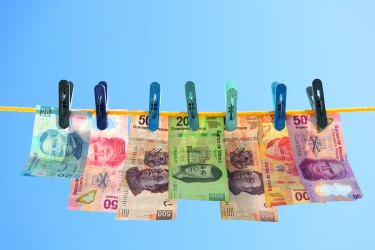#NotInOurGame
- Bonita
- Oct 24, 2018
- 3 min read
Stakeholders agreed Europe must take a stand on child trafficking in sport during a high-level panel session at the European Parliament in Brussels last week.
MEP Bogdan Wenta said the European Parliament’s Sport Intergroup would table a parliamentary question to the European Commision and place trafficking in sport on the EU political agenda.
“It is crucial to create and raise awareness around the issue of human trafficking as related to professional sport and acknowledge the magnitude of the problem,” Wenta said.
The event – co-hosted by Wenta, non-profit Mission 89, the European Parliament Sport Intergroup, and the Amersi Foundation – was the first time multiple sport stakeholders had met under the same roof in Europe to discuss trafficking in sport – particularly football.
Participants agreed to actively pursue concrete measures to eradicate trafficking in sport.
Attendees included representatives from FIFA, the Premier League, the International Labor Organization, the Office of Sport of the Italian government, Interpol, the United Nations Office on Drugs and Crime, Athletics Integrity Unit, Council of Europe, International Centre for Sport Security, SIGA, the European Football Agents Association, Kampos St-Denis, West Ham United Foundation, the University of Loughborough, University of Liverpool.
A powerful video testimony from football trafficking survivor Matthew Edafe of Nigeria rallied the audience to challenge a status quo where the issue is widely ignored. Edafe, who was recruited in Nigeria and then abandoned en route to Europe by fake agents, called for professional footballers to take a leading role in educating young Africans on legitimate pathways to a career in professional sport.
“The EU should not ignore the importance of trafficking in sport and its dramatic impact due to Europe’s attractiveness for youth athletes,” said Mission 89 Executive Director Lerina Bright. “This gives a responsibility to re-open discussion inside Parliament and for this subject to be debated until a structured and sustainable solution can be proposed.”
Baroness Young of Hornsey (UK), said the exploitation of children and young adults in sport cannot be tolerated and that collaboration across industry sectors and among stakeholders was “vital”.
“We can’t sweep this issue under the carpet,” Young said. “Addressing it and finding solutions is something we can do. It is easy to sign up to a charter but the next step is asking ourselves what we can actually do. We need leadership and we need people to stand up and say not in our game and commit to something concrete.”
Chris Eaton, a former FIFA and Interpol official who is now a consultant to the International Center for Sports Security, called on FIFA and regional football confederations to register and regulate players agents and register and regulate youth training camps and coaching schools.
Eaton said a publicly available registry of players, agents, and youth training schools would enable families to have confidence in who they are dealing with on behalf of their children.
Media representative Juliet Bawuah described the value of launching educational campaigns through social media to reach aspiring young athletes in Africa.
Mohamed Amersi, of the Amersi Foundation, linked the exploitation of athletes to the broader issue of modern day slavery.
“This was a groundbreaking gathering that took positive steps to address the eradication of youth exploitation and trafficking in sport,” Amersi said. “In terms of purchasing slave made goods, Europe follows the United States as the biggest abuser of modern day slavery. It is important that sport and institutional leaders recognize their important role in changing the status quo and particularly protecting the most vulnerable and marginalized.”
Baroness Young called for the group to reconvene within six months.
“There is a sense of urgency and a willingness to move forward together,” said Baroness Young.




